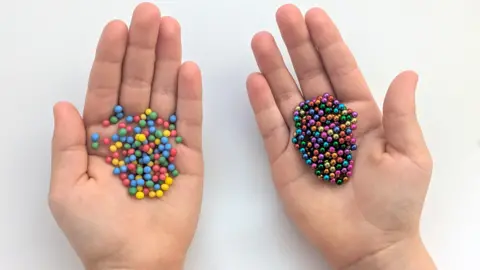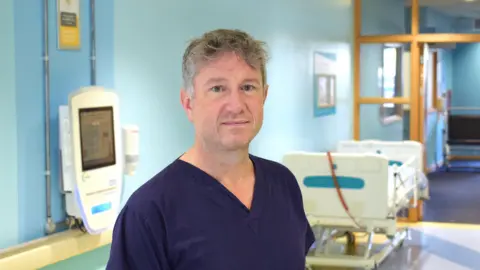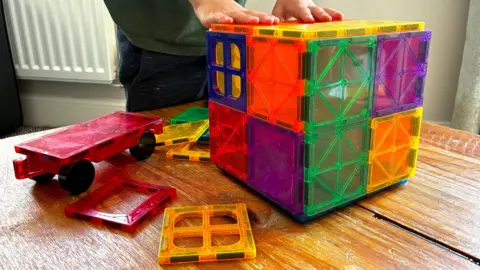Viral magnetic toy trend leads to doctors' warning
 University of Southampton
University of SouthamptonAbout 300 children a year are admitted to A&E in the UK after swallowing magnets, a new study has found.
The University of Southampton research revealed that one in 10 children required life saving operations after consuming the items, which are commonly used in toys.
It also found 6% of swallowing cases were linked to a viral social media trend, where the children – mostly girls - were trying to imitate tongue piercings by placing small magnets in their mouths.
Lead author and professor of paediatric surgery Nigel Hall, who works at the University and Southampton Children's Hospital, said retailers must do more to increase warnings on magnetic toy labels.
 University of Southampton
University of Southampton"Having an unplanned emergency operation is a traumatic experience for any child and their family," he said.
Mr Hall added that some of the young people ended up "with serious problems, like needing part of their bowel removed or requiring a stoma".
The data was provided by 66 UK hospitals between May 2022 and April 2023.
Mr Hall stressed that children should be taken to emergency departments early if they swallow a magnet.
"Most children who have swallowed a magnet do not show any symptoms, so it is really important that all cases have an x-ray to find out for certain," he said.
 University of Southampton
University of SouthamptonThe research has been welcomed by the Child Accident Prevention Trust which focuses on preventing death and serious injury to young people from avoidable accidents.
Its chief executive Katrina Phillips said: "These super strong magnets can rip through a child's guts and leave them with life-changing injuries. One boy has died.
"Take a moment to check who you're buying from. Don't assume that, just because you can buy something, it must be safe."
You can follow BBC Hampshire & Isle of Wight on Facebook, X (Twitter), or Instagram.
